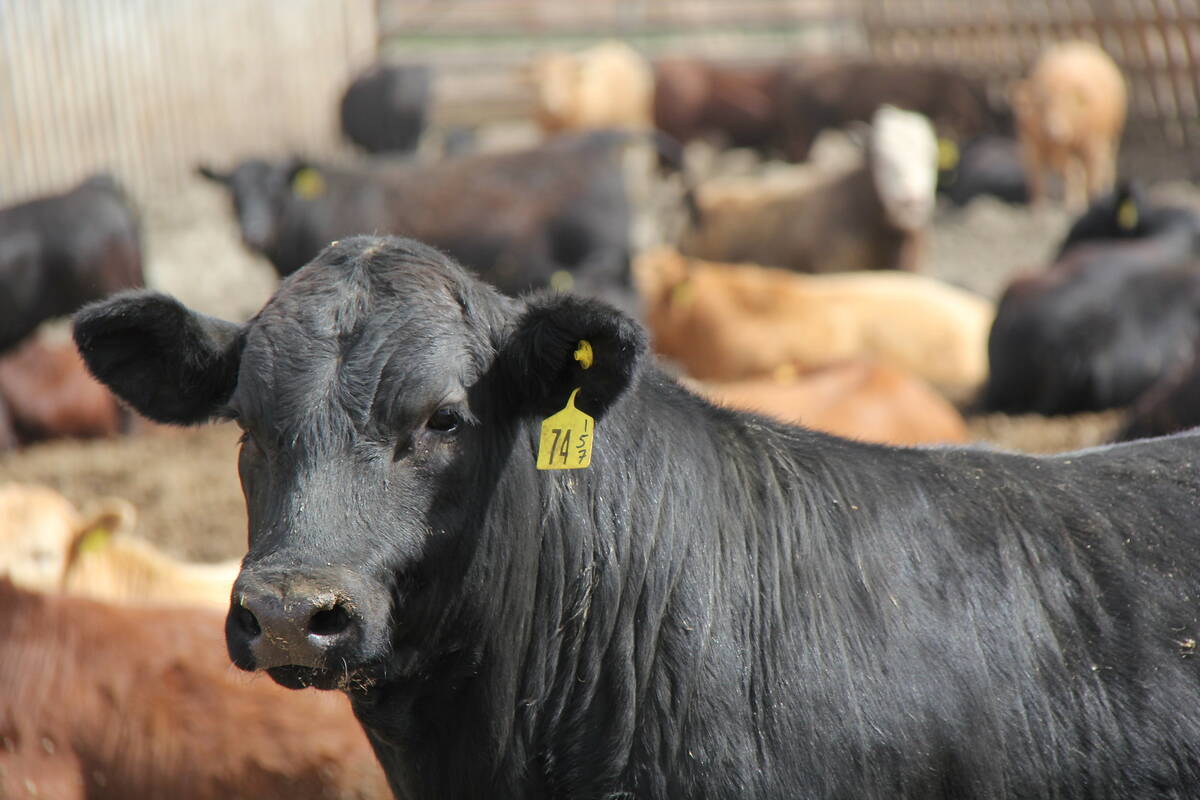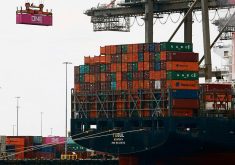Santiago | Reuters — Eleven countries including Canada and Japan signed a landmark Asia-Pacific trade agreement without the U.S. on Thursday in what one minister called a powerful signal against protectionism and trade wars.
The deal came as U.S. President Donald Trump vowed earlier in the day to press ahead with a plan to impose tariffs on steel and aluminum imports, a move that other nations and the International Monetary Fund said could start a global trade war.
The Comprehensive and Progressive Agreement for Trans-Pacific Partnership (CPTPP) will reduce tariffs in countries that together amount to more than 13 per cent of the global economy — a total of US$10 trillion in gross domestic product. With the U.S., it would have represented 40 per cent.
Read Also

U.S. livestock: Cattle steady ahead of feed report
Cattle futures on the Chicago Mercantile Exchange held close to unchanged on Thursday, with the bias lower in the most…
“Today, we can proudly conclude this process, sending a strong message to the international community that open markets, economic integration and international cooperation are the best tools for creating economic opportunities and prosperity,” said Chilean President Michelle Bachelet.
Heraldo Munoz, Chile’s minister of foreign affairs, said he expected Chile’s trade with China, its top trading partner, to continue growing alongside trade with CPTPP countries.
Even without the U.S., the deal will span a market of nearly 500 million people, making it one of the world’s largest trade agreements, according to Chilean and Canadian trade statistics.
The original 12-member agreement, known as the Trans-Pacific Partnership (TPP), was thrown into limbo early last year when Trump withdrew from the deal three days after his inauguration. He said the move was aimed at protecting U.S. jobs.
The 11 remaining nations finalized a revised trade pact in January. That agreement will become effective when at least six member nations have completed domestic procedures to ratify it, possibly before the end of the year.
“We are very hopeful like others that we will see the CPTPP coming into effect about the end of the year or shortly thereafter,” said Australia Trade Minister Steven Ciobo.
Canadian commodity and industry groups on Thursday hailed the signing. Chris White, CEO of the Canadian Meat Council, said the council is “confident that this deal has the potential to increase beef and pork sales by at least $1 billion, creating the potential to support an over 11,000 new jobs” in Canada.
For the Canadian Agri-Food Trade Alliance, representing groups in several exporting sectors, “the big prize” in CPTPP membership is access to Japan, a “high-value and stable market for agrifood products, importing $4 billion of Canadian agrifoods every year.”
The deal also affords Canadian agrifood exporters “a competitive advantage in the (CPTPP) region over the U.S., since it is not part of the agreement,” CAFTA said.
Grain Growers of Canada, among others, urged the Canadian government to be among the first six to ratify the deal, as “being part of the first wave will ensure that Canada can take full advantage of the initial round of tariff cuts.”
Noting the CPTPP countries make up nearly 27 per cent of Canada’s wheat export market, Kevin Bender, chair of the Alberta Wheat Commission said the deal will also “ensure that Canada isn’t losing market share to our main competitors within the CPTPP zone.”
The Canola Council of Canada noted that when tariffs are “fully eliminated” in Japan and Vietnam over five years, exports of Canadian canola oil and meal to those countries could increase by up to $780 million per year.
Markus Haerle, chair of Grain Farmers of Ontario, noted the deal “covers three important export markets for food-grade soybeans” — specifically, Japan, Vietnam and Malaysia — “and will improve access to pursue further growth.”
Cam Dahl, president of Cereals Canada, said the deal’s “benefits and influence are also expected to grow as potential new entrants such as Indonesia seek to join.”
GFO, Haerle added, “would like to see the agreement ratified without any non-tariff barriers inserted and to see a similar agreement with China get underway.”
‘The way forward’
The revised agreement eliminates some requirements of the original TPP demanded by U.S. negotiators, including rules to ramp up intellectual property protection of pharmaceuticals. Governments and activists of other member nations worry the changes will raise the costs of medicine.
The final version of the agreement was released in New Zealand on Feb. 21. The member countries are Australia, Brunei, Canada, Chile, Japan, Malaysia, Mexico, New Zealand, Peru, Singapore and Vietnam.
“We’re proud … to show the world that progressive trade is the way forward, that fair, balanced, and principled trade is the way forward, and that putting citizens first is the way forward for the world when it comes to trade,” Canadian Trade Minister Francois-Phillippe Champagne said.
In January, Trump, who also has threatened to pull the U.S. out of the North American Free Trade Agreement, told the World Economic Forum in Switzerland that it was possible Washington might return to the TPP pact if it got a better deal. However, New Zealand’s trade minister said that was unlikely in the near term, while Japan has said altering the agreement now would be very difficult.
On Thursday, Munoz said CPTPP was not an agreement against anyone and several governments had said they want to join it.
Trump vowed on Thursday to impose a 25 per cent tariff on steel imports and 10 percent tariff on aluminum imports, although he said there would be exemptions for NAFTA partners Mexico and Canada.
He announced the plan for tariffs last week, rattling financial markets.
Mexican Economy Minister Ildefonso Guajardo, in Santiago for the CPTPP signing, told Reuters he would not allow the U.S. to use the tariffs to pressure it in the NAFTA talks. Champagne told Reuters that Canada would not accept duties or quotas from the U.S.
— Reporting for Reuters by Dave Sherwood and Felipe Iturrieta; writing by Dave Sherwood and Caroline Stauffer. Includes files from AGCanada.com Network staff.















